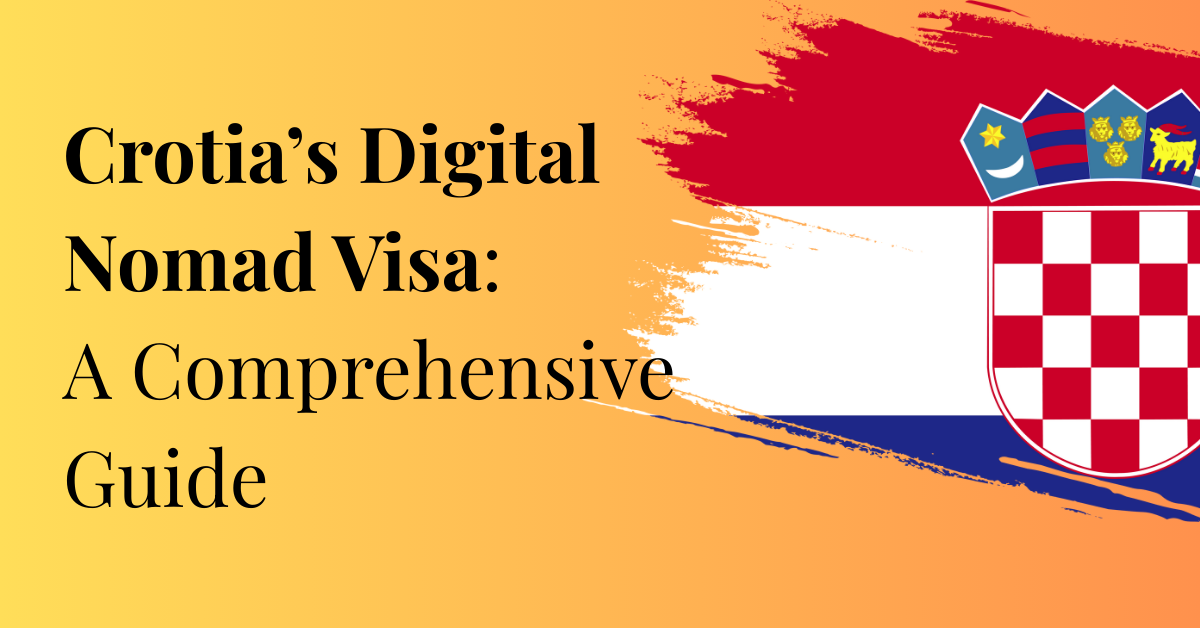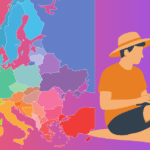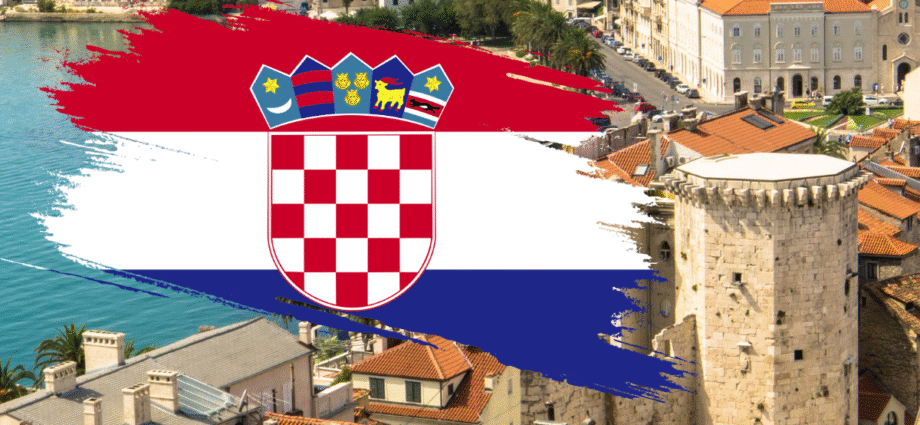Summary
The Croatia Digital Nomad Visa (DNV), officially a temporary residence permit, was established in 2021 to attract remote professionals and freelancers from outside the European Union (EU), European Economic Area (EEA), and Switzerland.
This program provides a clear legal pathway for these professionals to live and work in the country without requiring employment with a Croatian company. The visa is particularly attractive due to its favorable tax policies, streamlined application process, and extended duration.
As of late 2025, the program has undergone significant updates that are crucial for prospective applicants to understand. The maximum validity of the permit has been extended from 12 months to 18 months, offering digital nomads greater flexibility for a longer stay. Concurrently, the minimum monthly income requirement has been adjusted to
€3,295 to align with current economic conditions in Croatia. This report will focus on these updated figures and requirements, providing a precise and current roadmap for a successful application. One of the most compelling features of this visa remains the complete exemption from Croatian income tax on all foreign-sourced earnings, a benefit that sets it apart from many other similar programs globally.
Definitive Eligibility and Financial Criteria
Who Qualifies: The Foundational Requirements
The Croatia DNV is a specific residence permit with clear, non-negotiable eligibility criteria. The visa is designed exclusively for third-country nationals, meaning citizens of countries outside the EU, EEA, and Switzerland, who possess a valid passport.
Applicants must demonstrate that they work remotely for a company registered outside of Croatia or operate their own business with clients based abroad. A fundamental principle of this visa is that it explicitly prohibits any form of employment or service provision to Croatian entities, ensuring that the local labor market remains unaffected.
In addition to professional and nationality requirements, all applicants must satisfy character and health standards. A clean criminal background check is mandatory, and the document must be obtained from the applicant’s country of residence or any country where they have resided for more than one year in the past five years. This certificate must be apostilled or legalized and cannot be older than six months.
A further critical requirement is comprehensive health insurance. The policy must provide coverage for medical services within Croatia and remain valid for the entire duration of the intended stay. It is important to note that standard travel insurance is generally not accepted as it lacks the long-term residency coverage required for this permit.
Resolving the Financial Requirement Discrepancy
A review of various sources reveals conflicting information regarding the minimum income required for the Croatia DNV. Figures range from €2,539.21 to €3,295 per month. This discrepancy is not a sign of inaccurate reporting but rather a reflection of the evolving nature of the program’s regulations.
The higher figure of €3,295 is a recent update, explicitly linked to policy changes that came into effect in 2025. These adjustments are typically made to keep the financial requirements aligned with Croatia’s national economic indicators, such as the average net salary. An applicant’s success hinges on meeting the most current and authoritative threshold, making it essential to disregard outdated information.
The Definitive Financial Requirement for 2025
The current minimum financial requirements for the Croatia Digital Nomad Visa are well-defined and can be met in two ways. The first is to demonstrate a consistent monthly income of at least €3,295. This can be proven with bank statements from the last six months showing regular deposits that meet or exceed this amount, or through payslips for the same period.
Alternatively, an applicant can provide proof of a lump-sum balance in a bank account that is sufficient to cover their entire intended stay. For an 18-month stay, which is now the maximum period, the required amount is
€59,310. For a 12-month visa, the equivalent savings would be €39,540.
For applicants planning to bring family members, the financial requirement increases. A 10% increase is applied to the base amount for each additional dependent, including a spouse, unmarried partner, or minor children. The following table provides a clear breakdown of the required funds.
| Applicant Type | Monthly Income Required | Lump-Sum Savings for 18 Months |
| Main Applicant | €3,295 | €59,310 |
| With 1 Dependent | €3,624.50 | €65,241 |
| With 2 Dependents | €3,954 | €71,172 |
| With 3 Dependents | €4,283.50 | €77,103 |

The Application Journey: A Strategic Blueprint
Document Preparation: The Foundation of a Successful Application
The application for the Croatia Digital Nomad Visa is a meticulous process that begins with the precise gathering of all required documents. The key to a smooth process lies in preparing these documents well in advance to avoid delays caused by missing or incorrect paperwork.
A complete document checklist includes:
- Valid Passport: The passport must be valid for at least three months beyond the end of the intended stay.
- Passport-Size Photos: Two recent color photos (45x35mm) are required, meeting standard Schengen visa photo specifications.
- Proof of Remote Work: This can be an employment contract stating remote work is permitted, a service contract with a foreign client, or foreign company registration documents if the applicant is a business owner.
- Proof of Financial Self-Sufficiency: Recent bank statements from the last six months or payslips are necessary to demonstrate consistent income.
- Health Insurance: A comprehensive policy that is valid in Croatia for the entire duration of the visa.
- Criminal Background Check: A certificate of good conduct from the home country or any country of residence for the past year. This document must be less than six months old and be apostilled or legalized.
- Proof of Accommodation: A rental contract, property deed, or a confirmed booking for a short-term rental or hotel is required.
- Statement of Purpose: A letter or document explaining the reason for the stay in Croatia.
- Family Documents: If applying with dependents, a marriage certificate, birth certificate, or a document proving an unofficial union (cohabitation) is needed.
All submitted documents must be either in English or Croatian. It is highly recommended to use an accredited translator for any documents that are not in these languages.
Strategic Submission Methods and Associated Costs
The application can be submitted through one of three distinct methods, a choice that depends on the applicant’s current location and visa requirements for entering Croatia.
- Online Application: This is often the most convenient method. The application can be submitted through the official Ministry of the Interior portal by filling out the online form and uploading the required documents.
- Croatian Embassy or Consulate: Applicants who require a visa to enter Croatia must submit their application at a Croatian diplomatic mission in their home country.
- In-Person at a Police Station: A key advantage of the Croatia DNV is the option for visa-free nationals to enter the country as tourists and apply in person at a local police station. This allows applicants to secure accommodation and manage paperwork while already in Croatia, streamlining the process. However, some anecdotal evidence suggests that this route can be challenging, with potential bureaucratic hurdles and multiple visits required to complete the process.
The application costs are variable and depend on the chosen submission method. The following table provides a comprehensive financial breakdown.
| Cost Item | Online Application | Embassy/Consulate Application | In-Person (Police Station) |
| Temporary Residence Fee | €55.74 | €55.74 | €46.45 |
| Biometric Card Fee | €41.14 | €41.14 | €31.85 |
| Long-Term (D) Visa Fee | N/A | €93.00 | N/A |
| Administrative Fee | N/A | N/A | €9.29 |
| Total Government Fees | €96.88 | €189.88 | €87.59 |
| Additional Costs | |||
| Health Insurance | ~€500-1,000/year | ~€500-1,000/year | ~€500-1,000/year |
| Background Check | ~€50-100 | ~€50-100 | ~€50-100 |
| Translation/Notary | ~€50-200 | ~€50-200 | ~€50-200 |
Note: The official fee structure can be subject to change and may vary slightly depending on the specific location of the diplomatic mission or police station.
Family and Dependents: Expanding the Nomad Journey
The Croatia DNV program is welcoming to families, allowing close family members to join the main applicant through a family reunification process. This is a significant benefit that distinguishes the visa from many other single-applicant programs.
Eligible family members include a spouse, minor children, and, a particularly notable feature of the Croatian program, unmarried partners who can prove a long-term, cohabiting relationship. To include an unmarried partner, the couple must demonstrate they have been together for at least three years, or a shorter period if they have a child together. This progressive inclusion of non-traditional partnerships makes the Croatian visa a particularly appealing option for a diverse range of applicants.
To apply for a dependent’s permit, the main applicant must submit documents proving the relationship, such as a marriage certificate or birth certificate. As noted previously, the financial requirements increase by 10% for each dependent.
Tax and Legal Implications: A Critical Analysis
The Zero-Tax Advantage
The Croatia DNV offers one of the most compelling tax benefits for digital nomads in Europe: a complete exemption from Croatian income tax on all foreign-sourced earnings.
This means that income earned from foreign employers, freelance earnings from non-Croatian clients, remote consulting fees, and revenue from a foreign-registered business are not subject to taxation in Croatia.
This fiscal benefit is a primary driver of the visa’s popularity, as it allows individuals to maintain their tax residency in a more favorable jurisdiction while benefiting from an extended stay in a European country.
The Tax Residency Paradox: An Expert Legal Clarification
A common point of confusion for applicants is the interplay between the visa’s duration and Croatia’s general tax residency rules. Standard Croatian tax law states that an individual may become a tax resident if they spend more than 183 days in the country. This appears to conflict with the DNV’s 18-month validity.
However, this apparent contradiction is resolved by understanding the legal framework of the digital nomad visa itself. The DNV is a special-purpose permit designed to create an exception to the general tax code.
The law specifically carves out a provision that allows DNV holders to remain in the country for the full duration of their permit without becoming tax residents, regardless of the 183-day rule. This is a key legal safeguard that ensures the program’s intended purpose of attracting remote workers without imposing a local tax burden.
It is critical for applicants to understand that this tax exemption only applies to income sourced from outside Croatia; income from Croatian sources, such as local rental income or capital gains, would still be subject to local tax rules.
While the visa provides this unique protection, it does not absolve applicants of their tax obligations in their home country. For example, U.S. citizens are subject to citizenship-based taxation and must file a federal tax return regardless of where they reside.
The interaction between different tax systems can be complex, and it is strongly recommended that applicants consult with a specialized tax advisor to ensure full compliance with their home country’s laws and to take advantage of any applicable double taxation treaties.
Post-Approval and On-the-Ground Compliance
The Crucial First 72 Hours: Address Registration
Receiving visa approval is a significant milestone, but the process does not end there. A crucial, often overlooked, requirement for a successful stay is address registration. Upon entering Croatia, a visa holder is legally mandated to register their local address at the nearest police station within three days. This is a strict deadline, and failure to comply can lead to legal complications, including potential visa cancellation. This process is a vital step in formalizing the applicant’s temporary residence status.
The Final Step: Obtaining Your Biometric Residence Card
Following the address registration, the final step is to obtain a biometric residence card from the local police station. This card serves as the official proof of legal residency in Croatia and contains the holder’s personal information, photograph, and the validity of their permit. With this card, a digital nomad can fully integrate into daily life in Croatia, which includes opening a local bank account, signing rental agreements, and gaining access to other essential services.
Navigating Local Bureaucracy: From Theory to Reality
While official guides outline a clear and efficient process, on-the-ground experience can sometimes differ. Anecdotal accounts from other digital nomads describe the reality of dealing with local police administrations (“MUP”) as potentially frustrating, involving multiple trips and a reliance on in-person visits to receive updates.
The process can be time-consuming, with some applicants reporting wait times of several weeks to a few months for approval. This disconnect between the official, streamlined procedure and the potential for real-world friction is an important consideration. Applicants should prepare for a degree of bureaucracy and should not be discouraged by initial delays, as persistence is often key to a successful outcome.
Comparative Analysis: Croatia vs. European Counterparts
Choosing a digital nomad visa is a strategic decision that requires a comparative analysis of key factors. Croatia’s DNV stands out in a competitive European landscape. The following table provides a side-by-side comparison of the Croatia, Portugal, and Spain digital nomad visas.
| Feature | Croatia DNV | Portugal DNV (D8) | Spain DNV |
| Monthly Income | €3,295 | €3,480 | €2,762 |
| Initial Stay Duration | Up to 18 months | Up to 12 months | Up to 12 months |
| Renewal/Reapplication | Must reapply after 6 months outside Croatia | Renewable for up to 5 years | Renewable |
| Path to PR/Citizenship | No direct path | Yes, after 5 years | Yes, after 5 years |
| Tax Implications | 0% on foreign income | Income is taxable | 15% flat tax rate |
The data reveals Croatia’s strategic positioning within the digital nomad market. It offers the most compelling initial tax advantage, with a complete exemption from income tax on foreign-sourced earnings.
This contrasts sharply with Spain, which imposes a 15% flat tax on foreign income, and Portugal, which taxes digital nomads on their worldwide income. Furthermore, the initial stay of 18 months in Croatia is longer than the one-year permits offered by Spain and Portugal.
However, there is a clear trade-off. While Croatia is ideal for a medium-term stay focused on lifestyle and tax benefits, it is not a direct path to long-term residency or citizenship. The visa cannot be renewed consecutively, requiring an applicant to leave the country for at least six months before being able to reapply.
This is a significant distinction from Portugal and Spain, where the visas are designed to be renewable and offer a clear pathway to permanent residency and, eventually, citizenship after five years. This makes Croatia a destination for those seeking a defined-term experience rather than a long-term immigration solution.
Conclusion and Expert Recommendations
The Croatia Digital Nomad Visa presents a robust and highly attractive option for remote professionals seeking an extended stay in Europe. The recent extension of the visa to 18 months and the comprehensive tax exemption on foreign-sourced income are compelling benefits that place Croatia at the forefront of digital nomad destinations. The program’s flexible application methods and welcoming stance toward non-traditional family structures further broaden its appeal.
For a successful application and a smooth stay, a prospective applicant should adopt a meticulous and proactive approach. A failure to meet the most current financial requirements of €3,295 per month or a lack of properly legalized documents can be a critical failure point.
Furthermore, understanding the nuances of the post-approval process, specifically the strict 72-hour deadline for address registration, is vital for ensuring legal compliance. While the official process is well-defined, preparing for the realities of local bureaucracy, as reported by other applicants, can help manage expectations and mitigate potential frustrations.
Ultimately, the Croatia DNV is a superb choice for those prioritizing a generous tax exemption and a medium-term European lifestyle experience. However, it is not an ideal solution for those seeking a direct path to long-term residency or citizenship.
Final recommendations include a thorough review of the updated requirements, seeking professional tax advice to navigate home country obligations, and approaching the on-the-ground logistics with patience and diligence.
You Might Also Like:
Top Digital Nomad Cities in Latin America (2026 Edition)
Top 10 Digital Nomad Havens in Vietnam: Paradise Found
Experience Authentic Thai Food: A Culinary Journey For Your Taste Buds
Top 10 Things to Do in Newcastle upon Tyne: A Local's Guide to the Toon
Top 15 Digital Nomad Cities in the World (2026 Ranked)
Uncover Paradise: Top 10 Unforgettable Beach Destinations in the Philippines
- Top Digital Nomad Cities in Latin America (2026 Edition) - 15 December 2025
- Top Digital Nomad Cities in Europe (2026 Edition) - 14 December 2025
- Top Digital Nomad Cities in Asia (2026 Edition) - 14 December 2025











